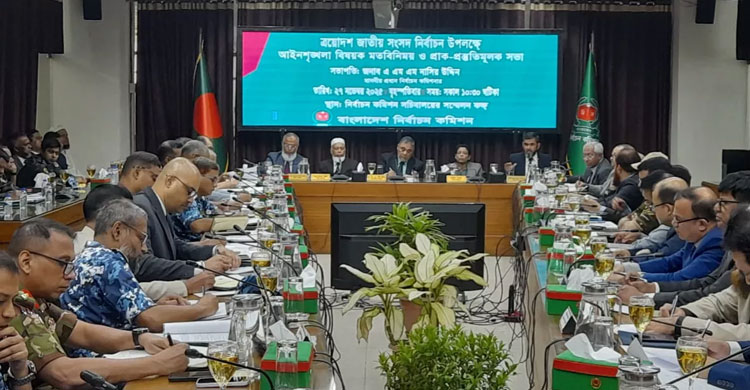EC shares force deployment plan with law enforcers ahead of Bangladesh polls


The Election Commission on Thursday (November 27) provided law enforcement agencies with detailed deployment plans for engaging their personnel during the upcoming national election, expected to be held in early February 2026.
“We’ve provided the outline of the deployment plan—now the respective forces will prepare the detailed version. Whether they will deploy their teams as static, reserve, or striking forces at the polling stations is entirely up to them. How many personnel will be deployed and for how many days—that will be determined by the Home Ministry,” EC Senior Secretary Akhtar Ahmed said on Thursday.
He said this while briefing reporters after the commission’s meeting with law enforcement agencies, including the armed forces, held at Nirbachan Bhaban in the city.
Top representatives from three armed forces – Army, Navy and Air Force– as well as the Home Affairs Ministry, Police, RAB, Border Guard Bangladesh (BGB), Coast Guard, Ansar and VDP, the Armed Forces Division, DGFI, NSI, NTMC, SB and CID attended the meeting.
The meeting was held with Chief Election Commissioner AMM Nasir Uddin in the chair, focusing on the deployment of security personnel, maintaining the law and order during the election, providing the security to election officials, election materials and polling stations, recovery of illegal arms and removal of illegal campaign materials like posters.
The EC Senior Secretary said the Commission does not have its own security force, rather it relies on the coordinated efforts of law enforcement agencies during the elections.
“They (law enforcement agencies) have assured us that they will start working in the field from day one and will play an effective role,” he said.
Responding to a question about the armed forces’ magistracy power, currently in effect, Akhtar Ahmed said the armed forces are now under the definition of law enforcement agencies. “Their (armed forces’s magistracy power will remain valid until February 2026,” he said.
When asked whether this magistracy power (with magistrates and the armed forces) might conflict with the legal framework after the announcement of the election schedule, he replied, “I don’t see anything contradictory here.”
Raising the details of the deployment outline, he said the plan is divided into three major components - static deployment for security personnel to be stationed at polling stations; installation of both static and mobile checkposts at various points and deployment of patrolling teams depending on geographical locations and access roads; and forming a central reserve force
“There will also be a central reserve force. So essentially, three components—static, mobile and central reserve. These will be prepared in advance based on the guidelines we’ve provided,” he said adding now the respective forces will design their arrangements.
He said that what is conventionally referred to as the striking force will also fall under these three components, aimed at ensuring mobility, deterrence and effective response according to the situation.
“We will also utilise NTMC’s capabilities. Cybersecurity issues will be closely monitored,” said the EC Secretary.
Talking further on the security plan, he said “Actually it is our strategic plan.”
